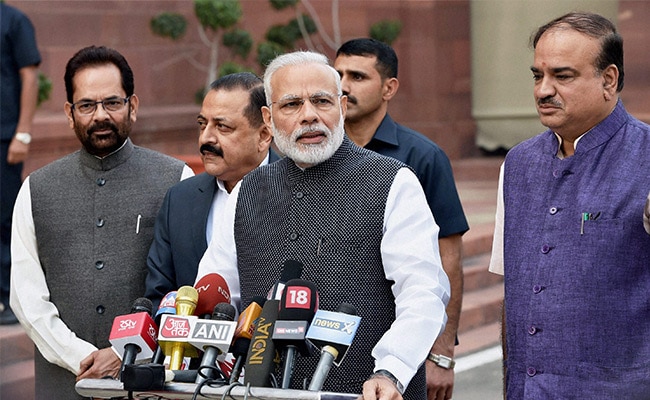
Faced with an escalating attack from a united opposition that now plans a nationwide bandh over demonetisation, Prime Minister Narendra Modi met Finance Minister Arun Jaitley on Monday evening for another review of the impact of the ban on 500 and 1000 rupee notes.
Here are the 10 latest developments in this story:
The government plans to focus on ensuring availability of cash in rural areas after feedback of extreme distress in villages, which have poor access to banking and where farmers are finding it difficult to pay loans amid the cash crunch after the notes ban.
The opposition, which has united in parliament to disrupt both houses over the currency ban, is now discussing a bandh or shutdown across the country after salaries for December have been paid, to protest against the hardship caused in villages and to common people.
In parliament, they have flayed the government for what they call faulty timing and implementation of the ban on high-value notes, alleging that it punishes the poor instead of the corrupt.
The opposition parties will meet on Tuesday to discuss their joint strategy. They also say they will hold a protest within the parliament compound on Wednesday.
The Congress has led the opposition in the demand that PM Modi must speak in the Rajya Sabha on the ban on Rs 500 and Rs. 1,000 notes, meant to combat black or untaxed money.
The government has made it clear that PM Modi will not contribute in the Rajya Sabha or Upper House, where the government is in a minority, and that Finance Minister Arun Jaitley will answer their questions. Mr Jaitley said the opposition is preventing that because it wants to stall parliament rather than engage in discussion.
Opposition parties have also demanded that parliament condole the death of those who they allege have died because of the cash crunch. "The 70 people who have died standing in queues at banks also deserve a tribute... they were also Indians, hard-working citizens," said the Congress' Ghulam Nabi Azad after the Rajya Sabha mourned the death of 130 people in a train accident on Sunday.
The opposition wants a debate on the notes ban in the Lok Sabha, followed by a vote. The government has reportedly objected to the language of the motion that would be used for the debate.
The demonetisation, generally praised for intent, has been criticised for poor execution because India has rushed en masse to banks to get the new Rs 500 and Rs 2,000 notes. Long lines have been exacting, and ATMs have run dry, while many cash machines are still being reconfigured to dispense the new, larger-sized bills.
The cancelled bills form 86 per cent of the notes in circulation, and rural India has been stranded without cash. PM Modi has sought 50 days to fix the cash problem, promising long-term benefits from the demonetisation.

